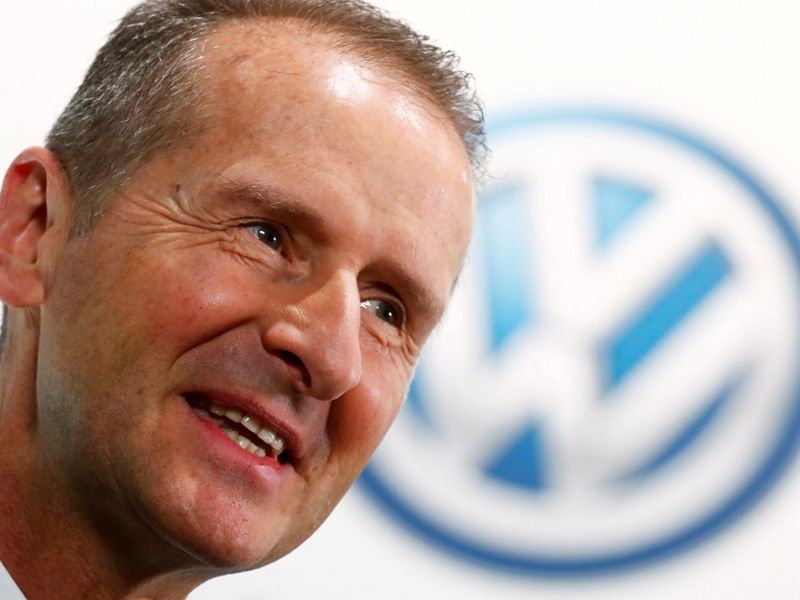
FRANKFURT – Volkswagen Group CEO Herbert Diess urged German workers to prepare for a deeper overhaul to remain competitive when Tesla Inc. ramps up vehicle production at its first European factory outside Berlin next year.
Tesla is swiftly improving built quality and looks set to achieve a production time of just 10 hours per car at its Gruenheide plant, Diess said Thursday in a prepared speech at a staff meeting in Wolfsburg. VW’s main electric-car factory in Zwickau needs more than 30 hours per vehicle, which should be reduced to 20 hours next year.
“Yes, I’m worried about Wolfsburg,” Diess told workers at the first employee gathering at the world’s largest car-manufacturing site since the COVID-19 pandemic. “I want that your children and grandchildren can still have a secure job here with us in Wolfsburg. That’s my point today. That’s why I’m here.”
Diess canceled a trip to the U.S. this week where he was supposed to meet investors and visit technology firms at the West Coast to soothe growing tensions with VW’s powerful union leaders at home. The CEO has been pushing to accelerate plans for a fundamental transformation of the German industrial giant to prepare for the era of electric cars that can drive autonomously.
VW’s new works council chief, Daniela Cavallo, called on Diess to focus his attention on resolving the persistent chip shortage that hit VW harder than Tesla or BMW Group instead of engaging in social media activities.
“You supply us frequently with nice pictures from your trips, but unfortunately still not with semiconductors,” she said.
The lack of chips forced VW to slash output at the sprawling Wolfsburg factory that’s about as big as Monaco to the lowest level since the end of the 1950s, when the site was half as big and churned out the iconic Beetle.
In a labor pact signed five years ago VW planned to make at least 820,000 cars in 2020, but it actually produced fewer than 500,000, Cavallo said.
Despite surging demand in the wake of the pandemic the Wolfsburg factory might only make 400,000 cars this year because of the chip shortage and management, Cavallo said.
To ensure sufficient utilization of the factory she urged Diess to allocate a second electric car in Wolfsburg “significantly earlier than 2026” when the Trinity project is slated for production, a key model for VW’s main brand to compete with Tesla.
At the heart of the clash lie Diess’ concerns that VW might lose its position as a world leading automaker unless it accelerates an overhaul to compete with Tesla, led by CEO Elon Musk, and nimbler rivals in China.
“I’m being frequently asked why I keep comparing us with Tesla. I know this is annoying to some,” Diess said.
“Even if I no longer talk about Elon Musk, he will still be there and revolutionizes our industry and keeps getting more competitive quickly.”
His comments came after Cavallo criticized Diess for his communication style in recent weeks, which she said fueled concerns among workers that the transformation will result in tens of thousands of job cuts.
“We’re tired of hearing time and again that the works council is apparently only concerned with preserving the status quo,” she said, adding workers and labor representatives were all backing the needed overhaul.
The conflict reached a new stage on Wednesday when sources familiar with the matter said a specially convened committee would discuss Diess’ future as CEO in an attempt to solve the dispute.